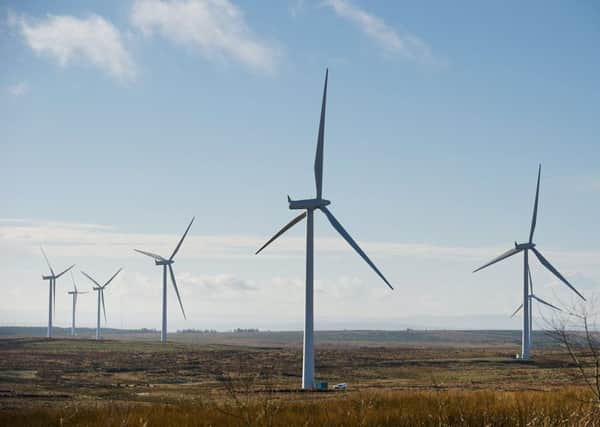RSE: No easy answers to the question of meeting Scotland’s future energy needs


In July 2017, the RSE launched its major inquiry into Scotland’s Energy Future with the goal of contributing to the debate about Scotland’s energy supply and use, while adequately recognising our moral and environmental responsibilities against the backdrop of climate change and a need to reduce carbon emissions.
As Scotland’s National Academy, the RSE is in the unique position of having access to a wide range of expertise provided by some of the foremost experts in Scotland. Furthermore, the RSE’s status as a renowned, impartial, learned society allows it to utilise this experience and knowledge to produce a considered view of the issues Scotland faces regarding energy and the options available to us.
Advertisement
Hide AdAdvertisement
Hide AdThe Inquiry has taken evidence from hundreds of individuals, organisations and businesses across a number of platforms. We have received written responses to our consultation, held public engagement events up and down Scotland, convened round-table discussions, and met with numerous stakeholders to ensure our report covers as much of the vast and complex area of energy policy as is possible.
On 17 June 2019 the RSE published its final report into Scotland’s Energy Future. The report serves as a guide to the energy landscape in Scotland, reviewing the governance of our energy system, analysing the context in which we produce and use energy and in which decisions will occur, and explaining the trade-offs that need to be made. The Inquiry provides the merits and demerits of all of the options available to Scotland to meet its energy needs, highlighting the issues associated with each where the Inquiry Committee considers there to be the most significant questions in need of address.
Some of the options are already a significant part of the landscape, while others may be some way from viability. Some options provide carbon free electricity but require high investment, and others provide affordable flexibility but may not be consistent with taking responsibility for our energy use.
This is simply to say that there are no easy answers.
Whether the option is a generation technology, a new kind of storage, a change in public behaviour, or a regulatory reform, none of the choices we assessed provide a silver bullet to solve the ‘energy quadrilemma’ of reducing carbon emissions, ensuring affordability, providing energy security, and doing all this in a way that is socially acceptable and economically sustainable.
What the report has found is that some options have more pressing issues than others, but that irrespective of what is chosen, decision makers must be up front and honest about the trade-offs that will need to be made and why they are being made.
What cannot be allowed to happen is for the difficulty of the task ahead to paralyse those responsible into indecision. Hard choices need to be made and significant investment will unquestionably be required to pursue whatever route is chosen. It is imperative, however, that the process in reaching a decision is grounded in robust scientific evidence and honest debate over the consequences. Indeed, the ramifications of doing nothing and allowing potential opportunities to slip away or sleepwalking into the default option could prove far higher and wider-reaching.
The report makes several recommendations including the need to establish an expert advisory commission on energy to help advise decision makers on all aspects of energy policy and governance; and the importance of considered and timely investment into options to meet Scotland’s energy needs. The importance of reducing overall demand for energy and improved energy efficiency measures are also stressed.
Fortunately, despite the difficult decisions that must be made, there is real reason for optimism. We strongly believe that the challenges Scotland, and the world, faces regarding energy should not only be seen as a threat, but also viewed as an enormous opportunity; and one which Scotland must grasp. Some of the options available for meeting future energy needs may prove more financially costly than ‘business as usual’, but this investment is also a real contribution towards the country’s prosperity and wellbeing, and could position Scotland as a global innovator.
Advertisement
Hide AdAdvertisement
Hide AdWe encourage anyone interested in Scotland’s energy future to visit the RSE’s website at www.RSE.org.uk/EnergyInquiry and access the report.
Sir Muir Russell KCB FRSE is Chair of the RSE Inquiry. Sir Muir served as Permanent Secretary to the Scottish Office and Permanent Secretary to the then Scottish Executive.
Prof Rebecca Lunn MBE FRSE is Deputy Chair of the RSE Inquiry. She is Professor of Civil and Environment Engineering at the University of Strathclyde